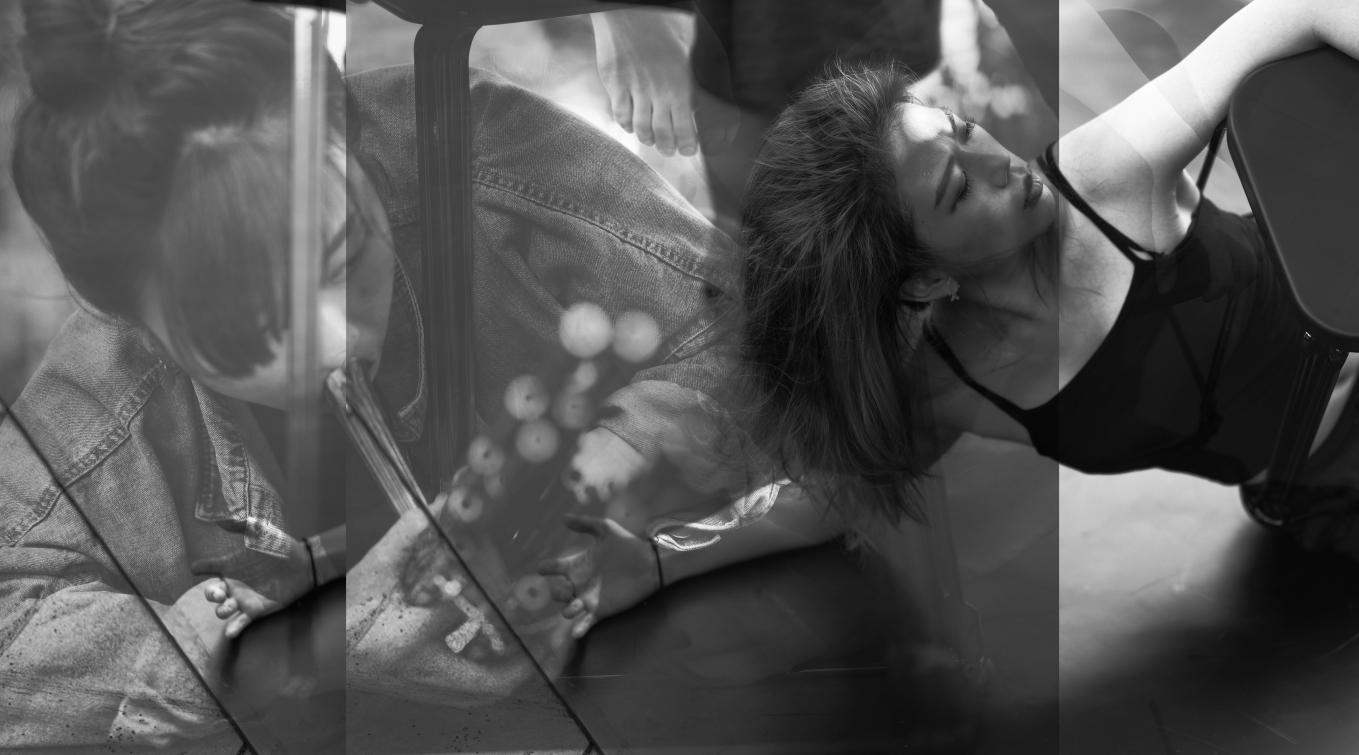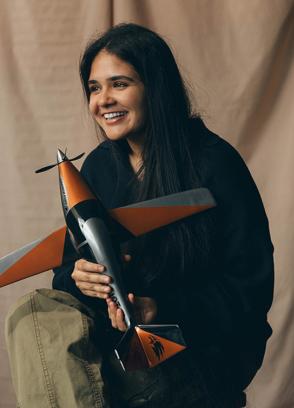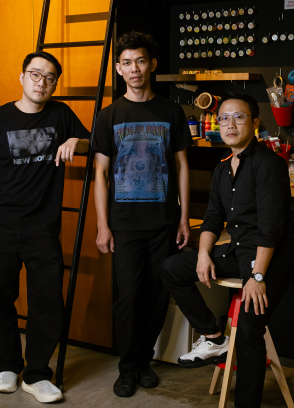09 October 2019
Image credit: Sherman Fu
As the rare art school that houses art, design, media and performance under one roof, interdisciplinary collaborations are an inextricable part of LASALLE’s DNA. With such opportunities for interdisciplinary collaboration within the curriculum, the artists, designers and performers that graduate from LASALLE are indeed a unique breed – adept at working with practitioners outside the realm of their art form while pioneering innovative artistic vocabularies and methodologies.
Neo Jia Ling and Jocelyn Tan are two such pioneering graduates. Studying BA(Hons) Dance and BA(Hons) Music at the College respectively, they met through the interdisciplinary Music Collab module, where they devised an original piece that melded movement and sound. Having established a creative connection, Jia Ling and Jocelyn continued collaborating on new work even after they had both graduated, creating a total of three works thus far.
In 2019, Jia Ling and Jocelyn took their work overseas, premiering their original cross-disciplinary work “jiak kantang” in the Move-Off Festival organised by dance company MOTUS in Siena, Italy. We checked in with Jia Ling about the genesis of the work, the vulnerability of working with a creative collaborator and the rewards of working across disciplines.
How did the opportunity to present the work in Italy come about?
During my days in LASALLE, I had the wonderful opportunity to dance in a creation by Simona Cieri from the MOTUS Danza Compagnia in Siena.
I stayed in contact with the company and was ultimately invited to do a residency as part of their Young Choreographers' Platform, under their Move-Off Festival 2019. The timeline of this residency coincided with Jocelyn’s and my desire to embark on a new challenge, so we took the plunge in a foreign land and allowed our work to come to life organically.
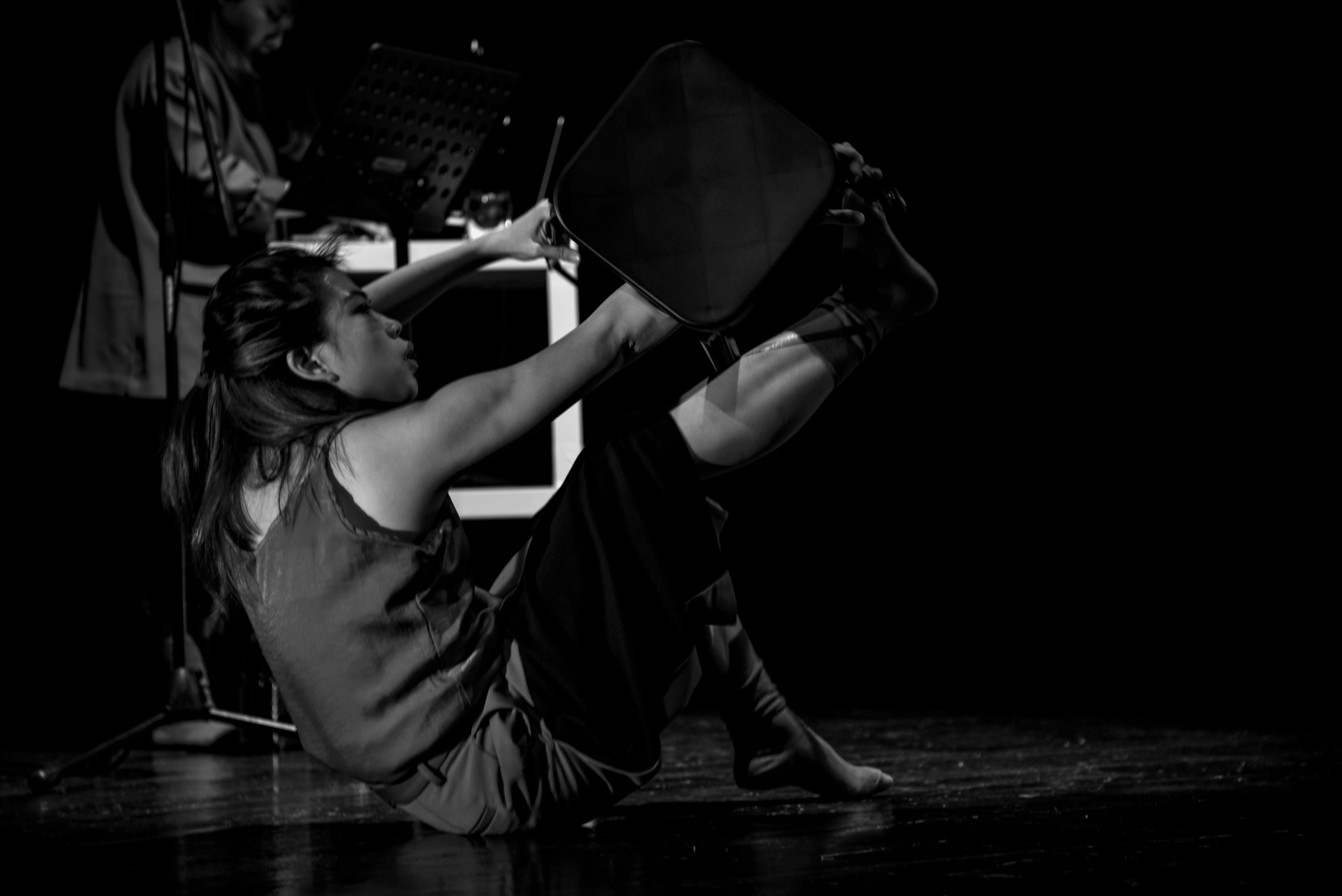
Jia Ling performing “jiak kantang” at Move-Off Festival in Siena, Italy. Image credit: MOTUS Danza Compagnia
How do you and Jocelyn bounce off each other as creative partners?
Working together, there has always been an indescribable give and take in which we both feel challenged and pushed by the other to expand (and expend) the personal limitations of our own artistic disciplines. Hence, as sound and movement makers, we were interested to see how much further we could push our ideas and concepts on our own bodies and on a large scale.
For “jiak kantang” we began with a common focus. We wanted to co-devise a music and movement piece, as well as to play with the themes of ‘identity’. At the point of genesis, the work was loosely held together by what ‘identity’ could possibly mean to both of us, driven by our keen need for self-challenge and growth as young artists.
In practice, we both started this work from a very honest and heartfelt conversation, where we questioned each other's interests and processes towards artistic creation. Over coffee, I recall this very poignant moment when I asked Jocelyn, "Do you allow me to approach this work with 100% vulnerability and rawness? To put my honest response and insecurities into the work and allow my personal experiences to translate into tangible, visceral movement?" She looked at me and said, “Yes.”
With that, she agreed to open herself up to the challenge that was me and the entire work, the entire collaboration. With that, she also committed herself to her own version of self-exploration – the exploration of her own identity as a musician, a composer and a creative. So many times in the process I would disrupt her tried and tested methods of making with my own haphazard and unruly ways of improvising and madness in movement.
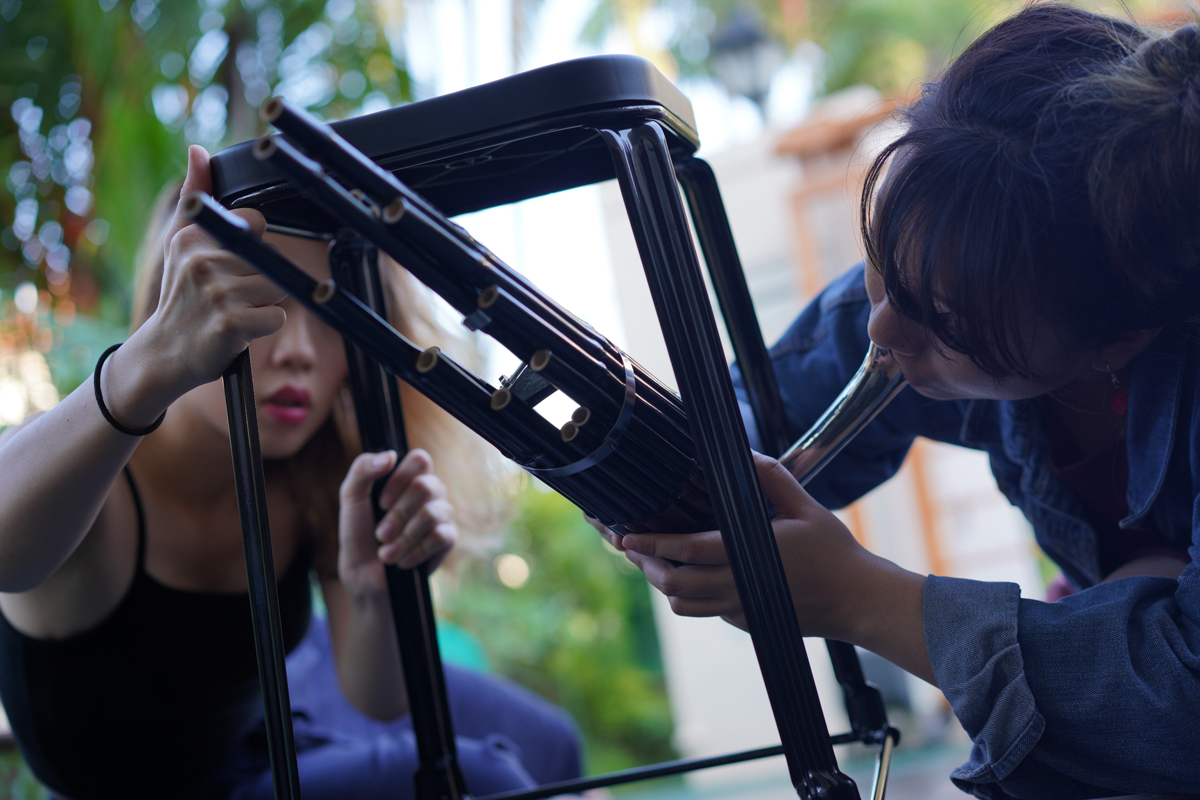
Jia Ling (left) and Jocelyn (right). Image credit: Sherman Fu.
Creative collaboration can be a very vulnerable process. How did you come to be comfortable about opening yourself up to collaborators?
Personally, I believe the consistent encouragement and possibilities of cross-disciplinary collaborations which I was exposed to during my education in LASALLE first sparked my interest in making work with artists of different disciplines. It wasn’t that I was against making interdisciplinary work prior to that, but being in LASALLE opened up that avenue for me via real human connections and honed my skills in understanding how to work with other artists.
I learnt the need to adjust my expectations and workflow, to accommodate or support different artists. I learnt how to share my own expertise in a manner that would be more palatable or more mutually conducive, yet also be assertive with my needs and wants as a movement artist.
At the crux of it, LASALLE was a seed bed for making new, experimental work and I believe my perspectives were further broadened and enriched by the discussions and connections made in my three years here.
What value does an interdisciplinary collaboration add?
As independent artists, we firmly believe in continually pushing ourselves to generate work that is both fulfilling with regards to our personal growth and artistic integrity, as well as provoke emotional and visceral responses to art. By collaborating across disciplines, we hope to examine how reaching beyond our own remit of creating art can generate the possibility for growth as individuals and practitioners.
What unites you and Jocelyn’s artistic practices?
With the notion of ‘what is most personal is most universal’ (Carl R. Rogers, On Becoming A Person) – we both have a similar vision to harness our deep personal impetus for artistic creation, in order to produce work that is raw yet distinctively challenging. Our collective is driven by an endless curiosity towards the extent that music and movement can co-exist in a symbiotic relationship. Above all, we hope to elicit visceral responses from audiences and inspire introspection through our work.
Ultimately, beyond this experience at MOTUS Danza, we also hope to develop a working methodology across music and movement that would aid in our own practice as artists and also effectively generate artistic material that truly encapsulates the stories and ideas that we want to share.
What’s next for “jiak kantang” after its Italian premiere?
The premiere in Italy was merely the first iteration of "jiak kantang" and with the support of MOTUS, we intend to eventually produce and re-stage it – perhaps in a completely different permutation and way, but retaining the concept, the theme, as well as the main elements of the work which is rooted in our own personas. We are both incredibly grateful and heartened by all the support which MOTUS has provided us throughout this journey, especially the 10 days we had the privilege of spending in their lovely studio.
This work was never intended to take an autobiographical turn, but somehow, as I poured myself into the work, the work reflected my struggles and this was reflected back by the audience. I'm not too sure if the movement, the music and the entire product of this long process actually delivered the message or ideas we were trying to explore. But I guess that's where the continual re-staging of the piece allows room for the work to be shaped. I believe that as the work evolves, we too, as artists, will continuously shape each other and ultimately our own identities, alongside with it.
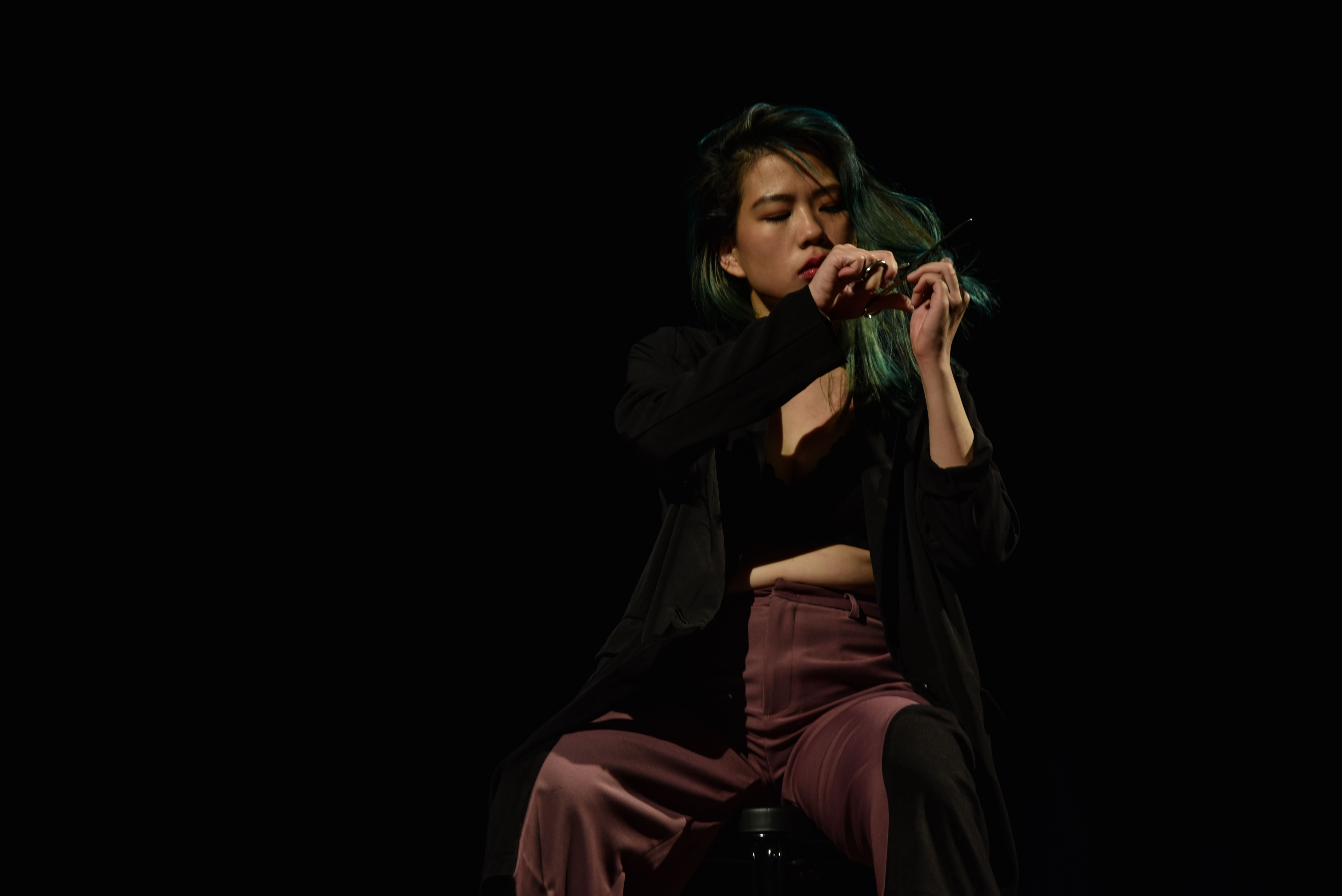
Jia Ling performing “jiak kantang” at Move-Off Festival. Image credit: MOTUS Danza Compagnia.
About "jiak kantang (eating potatoes in a foreign land)"
"jiak kantang (eating potatoes in a foreign land)" is a multidisciplinary performance co-devised by dancer Neo Jia Ling and musician Tan Li Yun Jocelyn.
A commonly used slang of Singaporean Hokkien and Malay origin, the phrase jiak kantang is literally translated as ‘eat potato’ and is used to negatively refer to Singaporeans who choose to reject their traditional culture, heritage and languages in favour of more Westernised variants (e.g. choosing to eat potatoes as a staple food instead of rice, as Asians traditionally do). In the piece, both performers explore different facets of identity as Singaporean artists of Chinese descent: Jocelyn, despite years of performing in various capacities as a traditional Chinese musician and composer, struggles with definitions of authenticity and what it means to be a good musician, whilst Jialing attempts to examine the implications of putting forward a genuine, performing body on a stage (which in itself, is an oxymoron), that is all at once, inescapably female and undeniably Asian.
Questioning the need for quick judgement and assumptions made on one’s character, personality and artistic choices upon surface values, the duo attempts to subvert the notions of who they are as performers and unique individuals. Together, they aim to challenge the generic societal perceptions of identity and by extension, confront audiences with issues of cultural appropriation and the ways of seeing.

